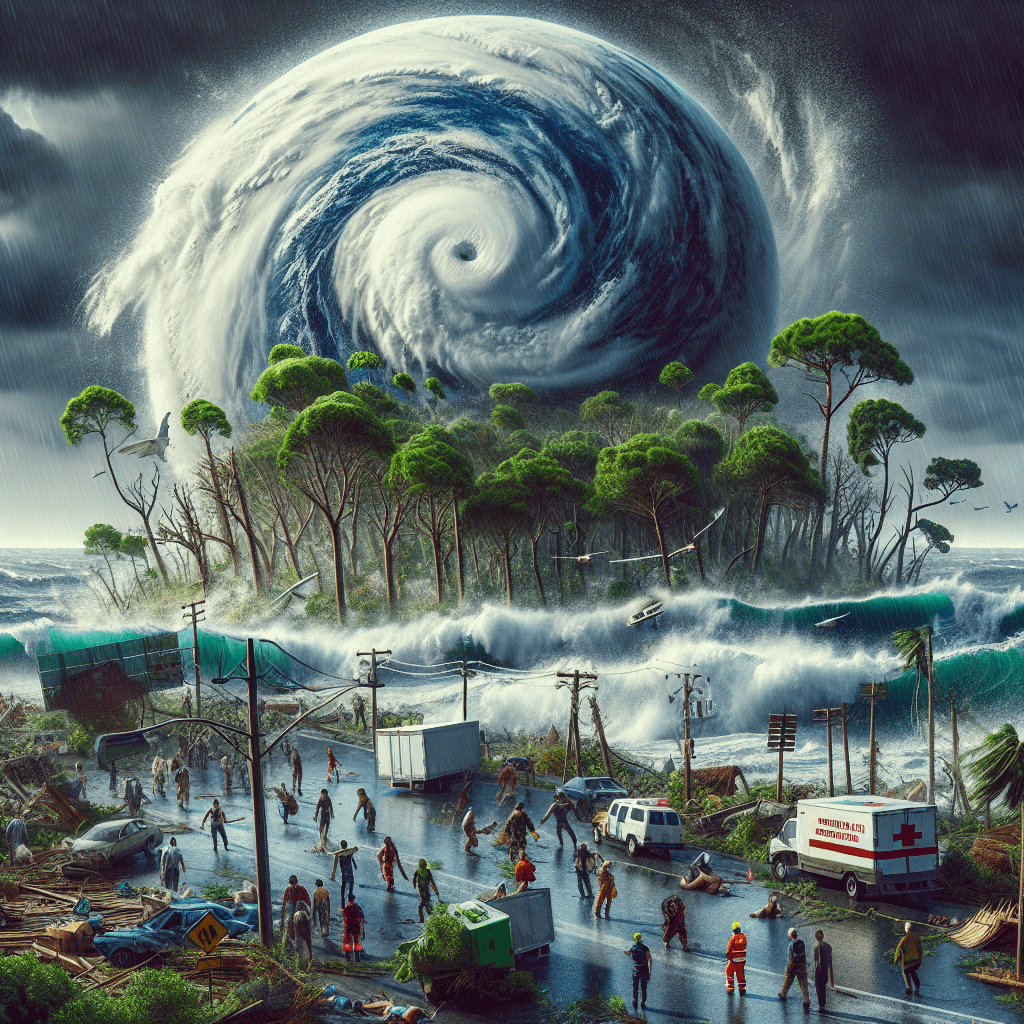If you’re enjoying this article, you’ll love our daily newsletter, The LA Report. Each weekday, catch up on the 5 most pressing stories to start your morning in 3 minutes or less.
Like wildfires chewing through dried-out forests, hurricane after hurricane fed on extra-hot ocean water this summer and fall before slamming into communities along the Gulf Coast, causing hundreds of billions of dollars in damages and killing more than 300 people. The warmer the sea, the more potent the hurricane fuel, and the more energy a storm can consume and turn into wind.Human-made climate change made all of this season’s 11 hurricanes — from Beryl to Rafael — much worse, according to an analysis released from the nonprofit science group Climate Central. Scientists can already say that 2024 is the hottest year on record. By helping drive record-breaking surface ocean temperatures, planetary warming boosted the hurricanes’ maximum sustained wind speeds by between 9 and 28 miles per hour.That bumped seven of this year’s storms into a higher category on the Saffir-Simpson Hurricane Wind Scale, including the two Category 5 storms, Beryl and Milton. “Our analysis shows that we would have had zero Category 5 storms without human-caused climate change,” said Daniel Gilford, climate scientist at Climate Central, on a press call. “There’s really this impact on the intensity of the storms that we’re experiencing in the real world on a day-to-day basis.”Support for LAist comes fromBecome a sponsor
Global warming affects wind speedIn a companion study, Climate Central found that between 2019 and 2023, climate change accelerated hurricane wind speeds by an average of 18 mph. More than 80% of the hurricanes in that period were made significantly more intense by global warming, the study found.That’s making hurricanes more dangerous than ever. An 18 mph boost in wind speeds might not sound like much, but that can mean the difference between a Category 4 and a Category 5, which packs sustained winds of 157 mph or higher. Hurricanes have gotten so much stronger, scientists are considering modifying the scale. “The hurricane scale is capped at Category 5, but we might need to think about: Should that continue to be the case?” said Friederike Otto, a climatologist who cofounded the research group World Weather Attribution, on the press call. “Or do we have to talk about Category 6 hurricanes at some point? Just so that people are aware that something is going to hit them that is different from everything else they’ve experienced before.”Hurricanes need a few ingredients to spin up. One is fuel: As warm ocean waters evaporate, energy transfers from the surface into the atmosphere. Another is humidity, because dry air will help break up a storm system. And a hurricane also can’t form if there’s too much wind shear, which is a change in wind speed and direction with height. So even if a hu

